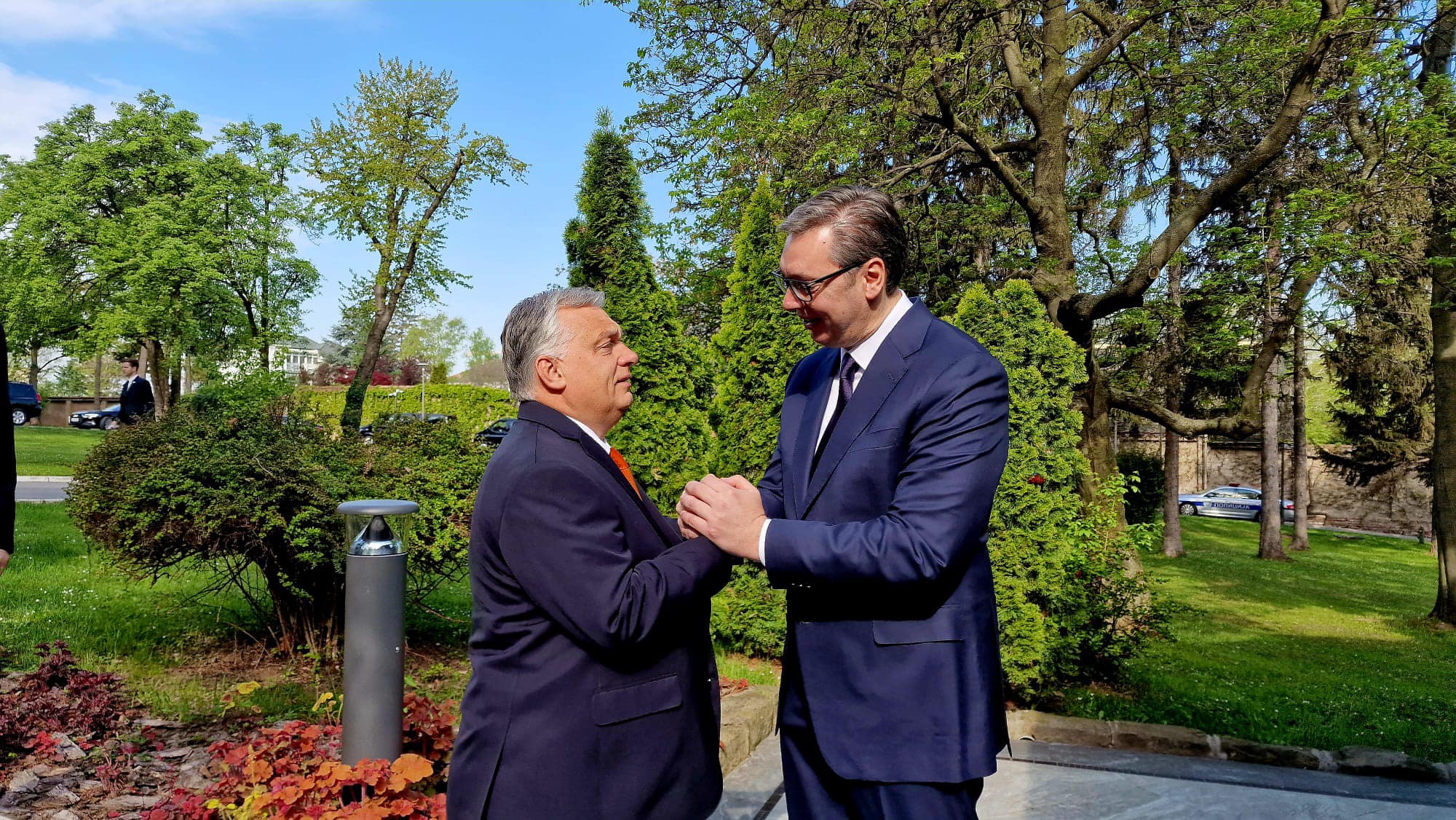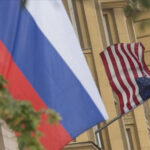Since 2010, after Viktor Orbán became Prime Minister of Hungary, the country’s policy towards the Western Balkans (WB) has become more proactive. The region has taken an important spot in Budapest’s foreign policy priorities as Hungary is now seen as an important actor in the region. At the same time, Hungary still has no formal strategy toward WB so and the country’s policy to this end is sometimes inconsistent and confusing to outside observers.
For years, Budapest’s main partner in WB has been Serbia and, to a lesser extent Bosnia and Herzegovina, Montenegro, and North Macedonia. Hungary has maintained minimal contact with Albania and Kosovo.
Why is Budapest putting a major focus on expanding its presence in the region? Here are some of the main reasons.
A historical memory that constantly reminds of the territories “lost” after World War 1, including in Bosnia and Herzegovina, Serbia, and Croatia. As the topic remains quite painful for Hungarians, the authorities constantly exploit it to pursue their political agenda, especially during election campaigns. This was the case during parliamentary elections when maps of “Greater Hungary” and other such souvenirs could be seen at almost every campaign rally run by the ruling FIDES party. Hungary’s current policy toward WB boils down to a basic desire to regain the region that was once “theirs”.
Struggle for regional leadership. Making Hungary a regional leader is the sweetest dream of most Hungarian politicians. They realize intense competition to this end in Central Europe, but WB is “free” and here Budapest indeed has some chance for achieving that leadership. Emphasis was placed on promoting the Euro-Atlantic integration of the WB nations, so Hungary has been systematically promoting the acceleration of their European integration. This is pointed out by Polish researchers Tomasz Zornaczuk and Veronika Jozwiak, who note that pacing up the European integration of the Balkans remains Hungary’s long-term goal. In this regard, Viktor Orban supports EU High Commissioner Josep Borrell, who noted at the meeting of the EU and WB leaders that the Balkans are extremely important for the European Union. On July 11, 2023, the Hungarian Institute of Foreign Policy hosted a discussion of Hungary’s policy toward WB, concluding that it is in Budapest’s political and economic interest to more actively promote the rapid European integration of the region’s nations.
For Hungary, the priority is political expediency and own interests, not the actual achievements of the candidate countries. Over time, Budapest has become, if not a regional leader, then a powerful locomotive of WB’s European integration and an effective mediator between WB and the EU – but exactly as much as it is in line with Hungary’s interests. Even if this stands in the way of WB nations coming closer to the EU membership. For instance, in 2018, the Hungarian prime minister recommended that the authorities in Skopje not change the name of their state (!)to unblock Greece’s veto on the launch of accession negotiations. Also noteworthy is Orban’s recent statement on blocking any sanctions against the President of Republika Srpska (BiH), Milorad Dodik, which will not contribute to BiH’s European integration and in fact endorses Dodik’s separatist moves.
Orban’s efforts to expand political influence should be viewed in the same context. To this end, he set up rather friendly ties with not-so-liberal leaders in the region. In some better times, his “club” of autocrats included former Prime Minister of Macedonia Nicola Gruevski, Slovenian Prime Minister Janez Janša, as well as the President Aleksandar Vučić of Serbia, and leader of Republika Srpska Milorad Dodik. Today, it’s only Vučić, Dodik, and Orban – all right-wing politicians united by illiberal, anti-European values, restrictions of freedoms and human rights, and well-camouflaged rejection of Muslims, who are “enemies” of Christianity. It’s those two who became Orban’s allies in ensuring Hungary’s “return” to WB and friendly ties with both allow Orban to solve some serious issues without attracting too much external attention.
Geographical proximity of the region contributes to developing trade and economic ties. Trade volumes have grown from approximately EUR 3 billion in 2010 to almost EUR 12 billion in 2022. The main cooperation sectors include telecom, transport infrastructure, energy, agriculture, and retail. In 2020, the Hungarian Export Promotion Agency created an investment “corridor” worth approximately EUR 7 million for Bosnia and Herzegovina, Serbia, and Montenegro.
Hungary’s main trade and economic partner in the region is Serbia, which accounts for almost 30% of Hungary’s turnover with WB. OTP Bank and 4iG (telecom) are expanding their presence in Serbia, and a high-speed railway between Budapest and Belgrade is under construction. Energy cooperation is another priority – the parties agreed on setting up an interconnector that will link Serbia with the Druzhba oil pipe. Also, Serbia’s acquisition of 5-10% of the shares in the Hungarian nuclear power plant Paks-2 is being discussed, and cooperation in the gas sector is expanding. Discussions are underway on establishing a joint venture between Serbia and the Hungarian MVM Group, with plans to invest EUR 600 million in the new entity, while Elektroprivreda will give up on 11 state-owned hydroelectric power plants that are criticized by Serbian experts.
Cooperation with Bosnia and Herzegovina is more modest as the current turnover stands at nearly EUR 0.7 billion, where the RS itself accounts for approximately 30%. In 2021-2023, Hungary assisted Republika Srpska for EUR 218 million in various forms. The possibility of Hungary’s oil and gas company MOL entering the RS with several projects is now also being discussed. During Orban’s visit to the RS last year, he signed the bilateral cooperation agreement, set to become the basis for interaction in various fields, from health care, economy, and education to transport and renewables.
Supporting the Hungarian minority abroad is traditionally part of the Hungarian government’s agenda. Orban turned this into his “mega goal”, which gives him the opportunity to use it in the domestic political struggle. Approximately 300,000 Serbian Hungarians who also hold Hungarian passports live in Vojvodina in the north of Serbia. They support and cooperate with the authorities of both countries. Meanwhile, holding dual citizenship, entitles them to vote in both jurisdictions. Traditionally, they support the ruling regimes. Budapest pays a lot of attention to ideological influence on Serbian Hungarians through the Hungarian-language media, in which nearly EUR 12 million has been invested over the past 10 years.
The authorities in Budapest put a considerable emphasis on maintaining security and combating illegal migration in the rather explosive region bordering Hungary. That is why, for the past few years, the government has maintained military presence in the area, participating in peacekeeping missions in Kosovo (KFOR) and BiH (EUFOR). During recent provocations by Serbs in northern Kosovo, Hungarian peacekeepers helped restore order. Twelve peacekeepers were injured. For the first time, a Hungarian general took helm of EUFOR, and the contingent of Hungarian peacekeepers was increased threefold, to 400 soldiers (the entire force has 1,100 personnel).
Hungary’s fight against illegal migration jointly with Serbia and North Macedonia, both located on the so-called “Balkan route” of human trafficking, should be viewed in the same context. An important role can be played by the tripartite agreement signed by Budapest, Vienna, and Skopje in strengthening the joint fight against this phenomenon. According to the agreements reached on December 3, 2023, additional Austrian and Serbian police units will be deployed on the borders with North Macedonia, equipped with modern technology, including drones. Illegal migrants see Hungary as a transit state, a gathering point, and a hub for ethnic gangs. A war has been going on between those for the past two years for the control of certain parts of the Serbian-Hungarian border, which also affects residents on both sides of the frontier. The friendship between Orban and Vučić allowed the Hungarians to build a fence on the border and deploy military units without seeing any protests from the Serbian side. Also, Vučić supports the thesis put forward by the Hungarian leader that “migration cannot be controlled, it must be stopped.”
Thus, the project of Hungary’s “return” to the Western Balkans should be considered in the context of several aspects:
– it works to form the image of Hungary and its leader Viktor Orban as a heavyweight not only in the Western Balkans but also across the European Union;
– it allows for pursuing a foreign policy that differs from the common foreign and security policy of the European Union (CFSP) – not only about Ukraine, but also toward WB;
– any action Hungary takes toward “returning” to WB corresponds exclusively to their own political and economic interests and contributes to strengthening Orban’s authority. Anything else, including helping WB on their European integration path, is secondary for Budapest.



